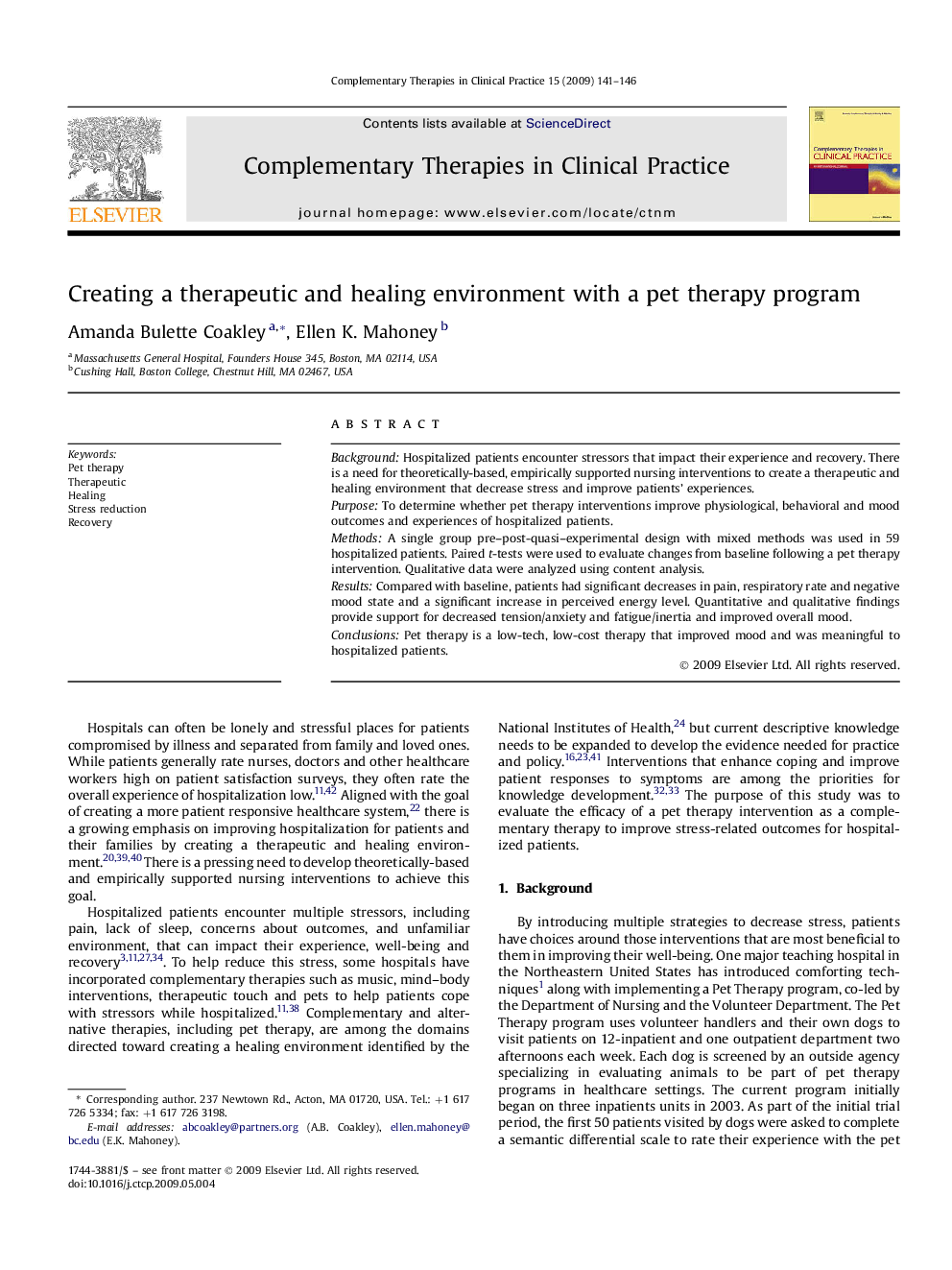| Article ID | Journal | Published Year | Pages | File Type |
|---|---|---|---|---|
| 2628910 | Complementary Therapies in Clinical Practice | 2009 | 6 Pages |
BackgroundHospitalized patients encounter stressors that impact their experience and recovery. There is a need for theoretically-based, empirically supported nursing interventions to create a therapeutic and healing environment that decrease stress and improve patients' experiences.PurposeTo determine whether pet therapy interventions improve physiological, behavioral and mood outcomes and experiences of hospitalized patients.MethodsA single group pre–post-quasi–experimental design with mixed methods was used in 59 hospitalized patients. Paired t-tests were used to evaluate changes from baseline following a pet therapy intervention. Qualitative data were analyzed using content analysis.ResultsCompared with baseline, patients had significant decreases in pain, respiratory rate and negative mood state and a significant increase in perceived energy level. Quantitative and qualitative findings provide support for decreased tension/anxiety and fatigue/inertia and improved overall mood.ConclusionsPet therapy is a low-tech, low-cost therapy that improved mood and was meaningful to hospitalized patients.
